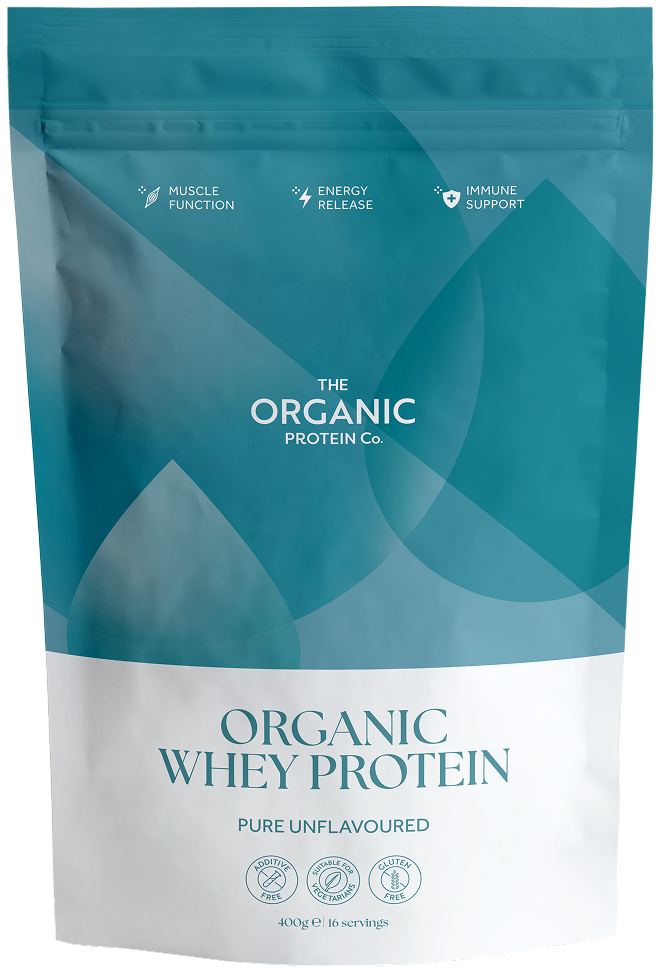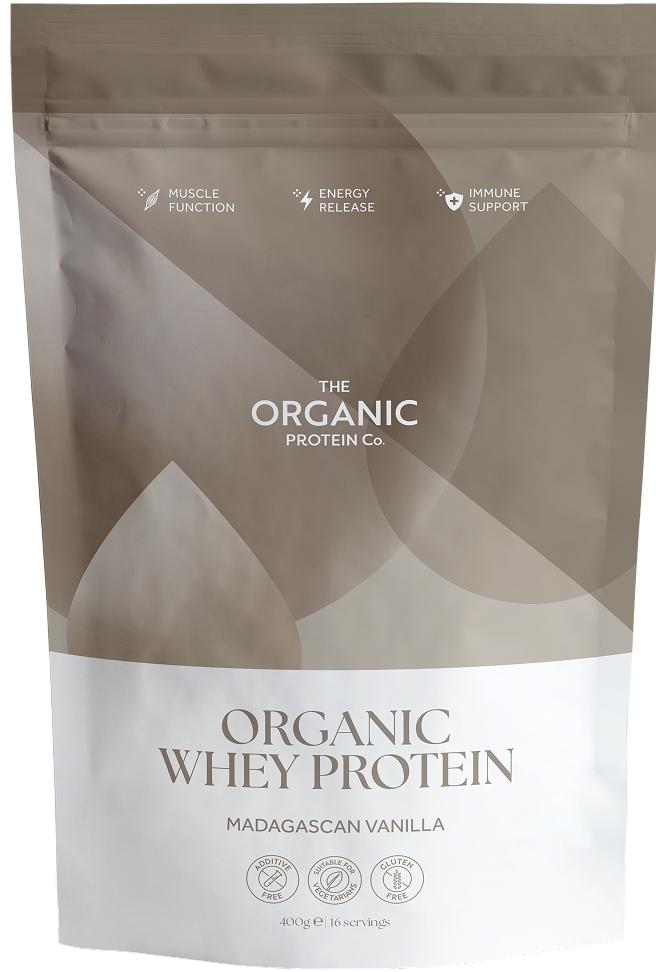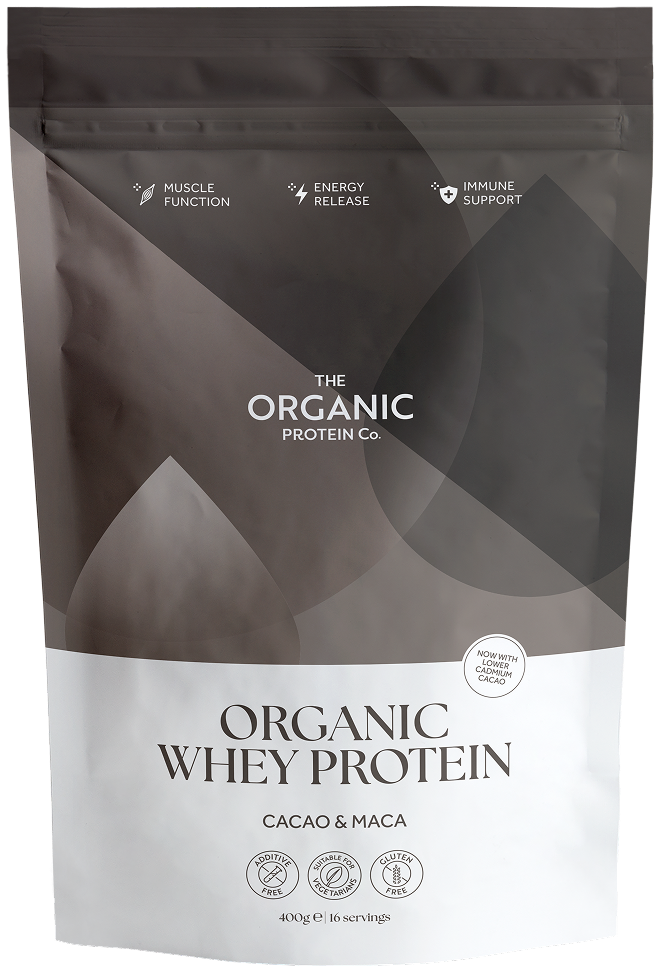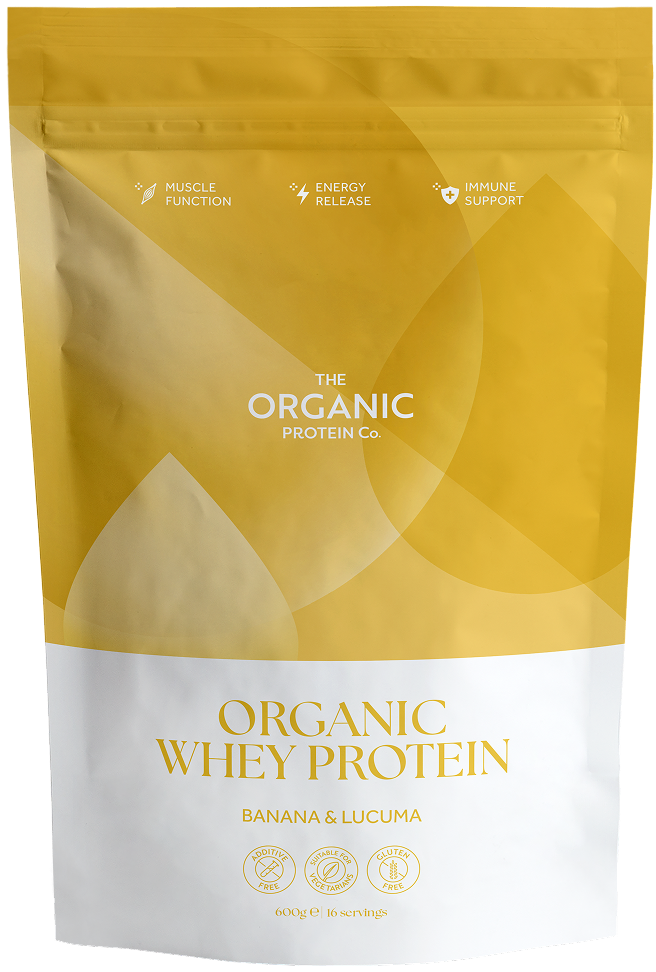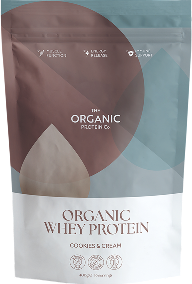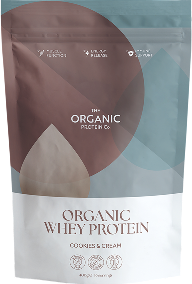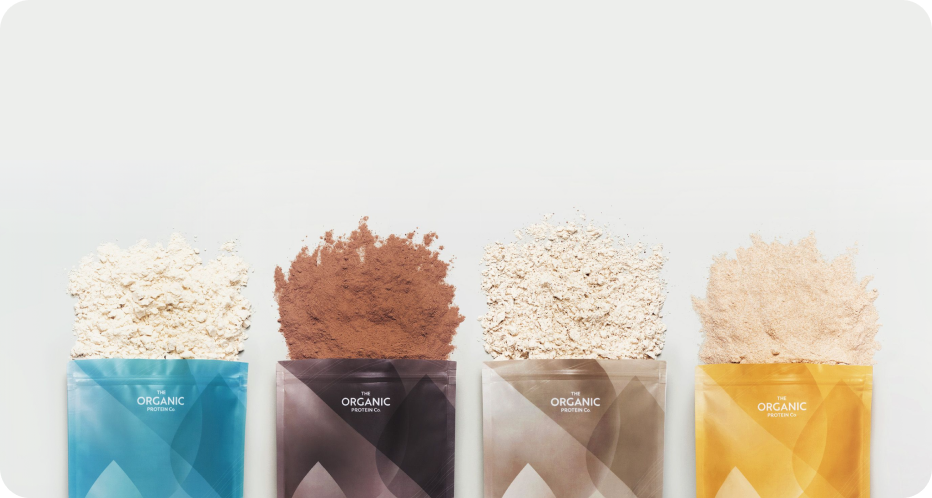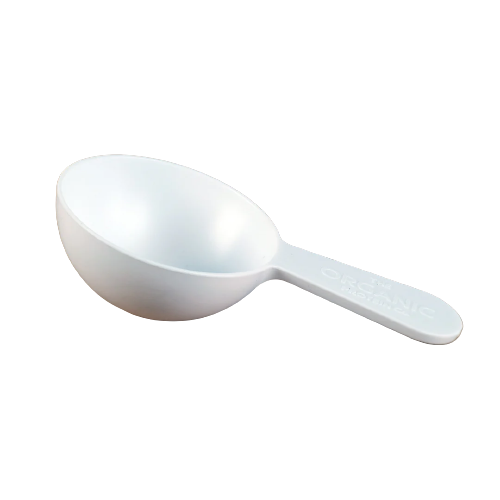Choosing the best protein powder for you is about more than whether you opt for unflavoured, chocolate or vanilla – though of course, that’s important too. When it comes to protein, the digestibility of your supplement is just as key to its performance and taste.
Read our guide to selecting the best protein powder for digestive comfort, covering the signs of poor digestion, the science of bioavailability and what to look out for in your search for a gut-friendly protein boost.
Why is digestion a factor in choosing the right protein powder?
Protein, along with carbohydrates and fats, is one of the key macronutrients our bodies need to operate (1). Its digestibility plays a pivotal role in choosing the right protein powder for several key reasons:
- Absorption efficiency: Proper digestion makes sure the proteins are efficiently broken down into amino acids, which your body can use in a multitude of bodily functions, from muscle health to hormone production.
- Comfort and wellbeing: Protein digestion mainly occurs in the stomach and small intestine (2), meaning protein powders that are hard to digest can lead to discomfort such as bloating, gas and other gastrointestinal issues.
- Optimal performance: The effective, rapid digestion and absorption of protein influences how quickly it can be put to use in your body, supporting muscles and other bodily functions.
- Long-term health: Regularly consuming a protein powder that doesn’t suit your digestive system can lead to longer-term health issues, such as gastrointestinal problems (3).
The signs of poor protein digestion
Is your current protein powder disagreeing with your digestive system? Any or all of these symptoms could be a sign that your protein powder might not be compatible with your gut, causing more harm than good, and it might be time to look for an alternative:
- Bloating: Uncomfortable swelling in your abdomen after using your protein powder.
- Gas and discomfort: Excessive gas or a feeling of unease in the stomach.
- Irregular bowel movements: Changes to your bowel movements like diarrhoea or constipation.
- Stomach pain: Persistent pain or discomfort after consumption.
It is also possible you have unresolved gut health issues that need addressing which, once resolved, should expand the number of protein sources you are able to consume comfortably.

What to look for in a digestion-friendly protein powder
It goes without saying that all of our bodies are different and what works for one body might not work for another. For more personalised support, you should always speak to a health professional, such as your doctor or dietitian, to understand your individual needs.
Below are some general tips on what to watch out for when choosing the best protein powder for a happier digestive tract and the best impact on your body.
The science side: protein bioavailability
There are two ways to look at protein digestibility. One way, which we’ve covered above, is to consider how well your body is digesting a protein powder based on how it makes you feel. In these cases, the best and most digestible protein is the one which doesn’t leave you with uncomfortable or abnormal gastrointestinal symptoms.
But there’s another side to protein digestibility which is key in choosing the right protein powder for your health goals – and that’s bioavailability.
What is bioavailability?
Bioavailability is a term used to describe how well your body digests and absorbs a protein. Essentially, how quickly and easily it can break the protein source down into essential amino acids and put them to use in the body.
Which protein powders have the best bioavailability?
Whey protein is widely considered to be one of the most bioavailable proteins, being digested and absorbed quickly by the body (4). Casein, the other protein found in cow’s (and human’s) milk, also has a high bioavailability but takes longer to digest once consumed compared to whey protein.
Plant-based proteins, on the other hand, are digested and absorbed at a slower rate than whey, casein or egg white protein:
“Say we have two protein powders with 20g of protein; with whey protein powder, we absorb 18-20g of that protein. With a plant-based protein such as pea protein, we might only absorb 10-12g. This is because of the fibre in plants, which means they take longer to digest.” Belle Parrish, Registered Associate Nutritionist at Balance by Belle
If you do opt for a plant-based protein powder, research has shown that soy protein isolate has good bioavailability, if a little short of whey protein concentrate and isolate. This is typically measured through PDCAAS and DIAAS scores; you can find out more about this in the Nutrition & Metabolism journal.

Protein digestibility: listening to your body
While whey protein is known for being highly digestible and efficiently used by the body, there are various other factors that might influence your choice of protein powder. Often, your body will tell you if a protein isn’t quite right for you, and below are some factors to keep in mind.
Intolerances and sensitivities
Many of us are more sensitive to certain foods than others. Whether it's intolerances or allergies, some protein powders can be a trigger for these sensitivities, making them a challenge to digest or worse. Some common digestive issues to consider are:
- Lactose intolerance: If you’re intolerant to lactose products, you might find whey and casein trickier to digest. However, it’s good to know that the lactose content of whey protein is actually very low compared to milk. Skimmed milk powder contains around 50g of lactose per 100g, whereas whey protein typically contains between 1-5g per 100g.
- Gluten sensitivity: Gluten intolerance or coeliac disease means the body struggles to, or can’t, digest gluten. Some protein powders may be contaminated with gluten during processing, so look for a 100% gluten-free label for peace of mind.
- Soy allergies: Allergies to soy are common, particularly in infants and young children (5). Those who suffer from this type of allergy should avoid soy protein powder, and look out for a non-soy source of protein.
- Dairy protein allergies: If you’ve been diagnosed with an allergy to milk and dairy proteins, you will need to avoid whey or casein protein powders, depending on which you’re allergic to – or indeed the pair, as most sufferers typically have a sensitivity to both.
Pea protein and rice protein are excellent hypoallergenic alternatives that are generally well tolerated and free from common allergens, if you struggle with any of the above sensitivities.

The advantages of natural protein powders
Beyond the source of protein in your protein powder, pay attention to the other ingredients on the label. Many popular protein powders are highly processed, non-organic and artificially sweetened, affecting digestibility in two ways:
-
Additives and artificial ingredients: Many protein powders are enhanced with artificial flavours, thickeners, and emulsifiers, or artificially sweetened with aspartame, sucralose or stevia. Research is ongoing (6), but some studies show negative effects on the body, particularly the gut – for example, sucralose and other sweeteners might change the intestinal microflora and lead to intestinal blockage, while some artificial ingredients can cause inflammation (7).
- Pesticides, fertilisers and herbicides: Non-organic protein powders increase the presence of pesticides, fertilisers and herbicides in your diet. Let’s take whey, for example. From non-organic sources, the cows may have been grazed on grass with pesticides, fertilisers, and herbicides (or with GMO feed) which can affect the gut microbiome (8,9).
In both cases, a protein powder that strives to be more natural in its origins – such as using whole food ingredients for flavours, avoiding artificial sweeteners and ensuring organic sourcing – may potentially be easier to digest, avoiding these negative effects.
More tips for easing protein digestion
After choosing a protein powder, there are a few steps you can take to ease digestion. These include:
- Hydrating well: Drinking adequate water is crucial when consuming protein powders. Water helps to facilitate the digestion and absorption of proteins and prevents constipation (11).
- Combine with digestive enzymes: Adding digestive enzymes to your protein shakes can help break down proteins into more absorbable forms, reducing the likelihood of digestive discomfort. Taking lactase enzymes with your whey protein can resolve any lactose intolerance issues, too.
- Start small: If you're new to protein powders or have experienced digestive issues before, start with smaller amounts to allow your digestive system to adjust.
- Mind the timing: When you choose to use your protein powder can be influenced by its digestive behaviour – for example, many opt for a casein protein powder before bed, as it digests more slowly over the course of the night.
- Don’t forget fibre: Aim to consume around 30g of fibre per day to help with digestion, including whole grains, fruits, vegetables, nuts, seeds, legumes and pulses.

The ‘scoop’ on effective protein digestion
Effective digestion of your protein powder – without the nasty side effects – not only means you enjoy consuming it more, but it’s also likely that your body will be able to use it more efficiently.
Whatever your health goals and dietary needs may be, be sure to keep the above points in mind during your search for the best protein powder. It might take some trial and error to find the option that’s just right for you, but it’s worth it in the long run.

